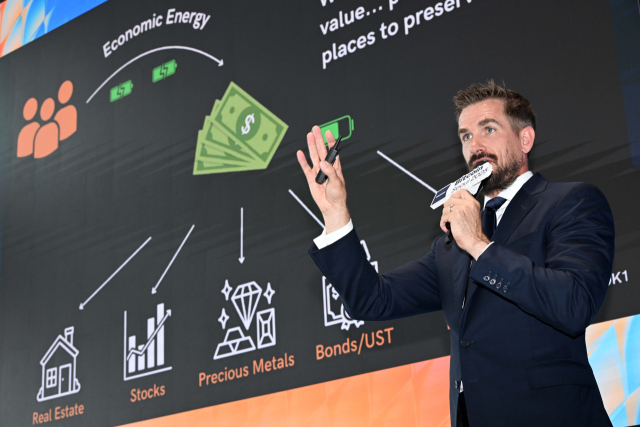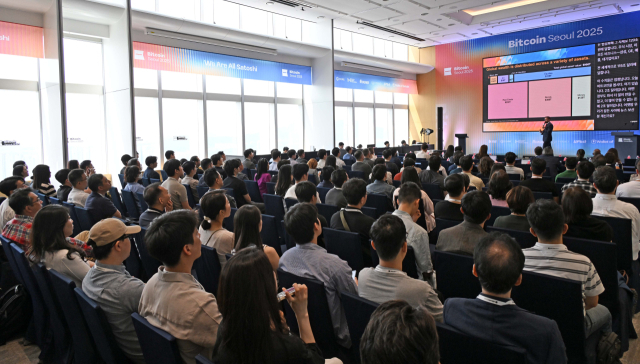
Voices have emerged suggesting Bitcoin (BTC) as an alternative, pointing out that the dollar system, which has operated as a key currency, has reached its limit. The argument is that only a monetary structure operating without central intervention can sustain a viable monetary order.
The 'Bitcoin Seoul 2025' event held on the 6th at Signiel Seoul in Songpa-gu opened with a keynote speech by Preston Pysh, partner of Ego des Capital. Speaking on the topic 'Why Bitcoin?', he diagnosed that the dollar-centered financial order that has continued since the collapse of the gold standard has reached a structural crisis.
Related Articles
- "Korea Should Hurry to Allow Spot ETF... Expect Institutionalization Discussions in New Government" [Bitcoin Seoul 2025]
- "Discussing Bitcoin Incorporation Strategy with Korean Listed Companies... Korean Version Strategy Will Come Out in 2-3 Months" [Bitcoin Seoul 2025]
- "Spot Asset ETF, Limited to Bitcoin, etc... More Stable Than Direct Investment" [Bitcoin Seoul 2025]
- El Salvador Education Organization "Bitcoin Popularization, Culture More Critical Than Technology" [Bitcoin Seoul 2025]
The key issue he pointed out is the privilege of currency issuance. Pysh stated, "The first person to receive money can buy the scarcest and most profitable assets first" and "Those at the end of the line only receive choices after everything is already gone." He noted that "this is the biggest incentive distortion of the fiat money system."
He also criticized the International Monetary Fund (IMF) and World Bank for contributing to this structure. He said, "These organizations lend money to specific countries and then force an economy centered on a single crop, making them export at lowered prices to developed countries." He further explained that "when default occurs, they strengthen the debt chain by lending more money at lower interest rates." In this structure, money is continuously artificially printed, and only those close to the system accumulate assets. He pointed out, "People now want to store the economic energy they create in assets like real estate, stocks, or art" and that "distorted asset prices are evidence that the system itself is broken."
Pysh proposed Bitcoin (BTC) as a solution to these problems. BTC has a fixed issuance of 21 million, and anyone can verify all transactions. It is a structure without a central control. Pysh emphasized, "BTC operates as encrypted energy, and this is truly trustless money."
He also mentioned the differences between BTC and other virtual assets. "While BTC can be directly operated by anyone, proof-of-stake (PoS) virtual assets are controlled by those with many tokens" and "this is ultimately no different from the existing dollar system."
Pysh assessed that Korean society's culture aligns with BTC's philosophy. He said, "Korea is a country with an inherent 'proof of work' spirit" and that "in a culture that recognizes the value of those who save and produce, BTC can be naturally accepted as currency." He added, "For net producers, BTC is a means to fully preserve their economic energy."

- Reporter Do Ye-ri
< Copyright ⓒ Decenter, Reproduction and redistribution prohibited >







